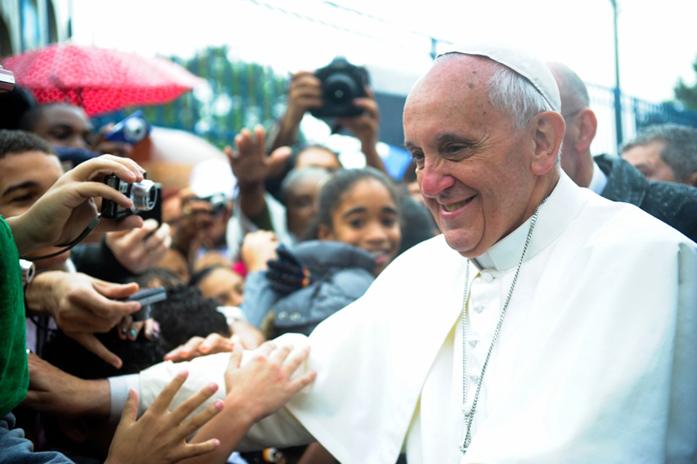Samuel Studer
[email protected]
Pope Francis will travel to the United States next week. Keep in mind his announcement earlier this month that the annulment process will be faster and easier for Catholics. Then note the that 60 percent of the church’s annulments come from the United States, according to the Catholic World Report. My guess is this will be one interesting visit.
Eighteen months ago, the pope introduced the argument that divorced and remarried Catholics should be allowed to take communion, sparking an internal war placing cardinal against cardinal. To this day, the pope has not fully addressed the issue. In the past, without an annulment, divorced and remarried Catholics could not take communion. The squabbling has spread on the Internet, books, and newsrooms all across the world.
And clearly, this war was started intentionally.
The pope’s radical changes, which will take effect on Dec. 8, will make it easier and cheaper for couples to divorce. The Catholic Church promises an accelerated option in which local bishops can hand out annulments in as little as 45 days. Certainly some couples may have to jump through hoops, but overall, the changes would help divorcees a second marriage and still be involved in church life.
And yet — this is where it gets confusing: All these changes do not shift the church’s view that marriage is indissoluble. Rather, the pope said it was the church’s view to focus on the salvation of souls.
On one hand, the new changes weaken the Catholic doctrine because they do not create a sense of unity. The pope’s decree was a very liberal and unexpected change, the most drastic one the church has seen in centuries. And yet change was needed in the modern world and should have been addressed many years ago. Francis recognizes that two people should not be together if it is not beneficial for either party.
This change could be a compromise for Catholics on each side of the fence. In one camp are the conservatives who resist change and believe the pope is acting single-handedly and without consideration of traditional doctrine. The second camp are the younger, more progressive Catholics who, among other things, were hoping for changes to be made in favor of same-sex couples and feel the conservatives are uncompromising.
Francis’s allies are advocating for these innovative changes and trying to move progressive goals in the right direction. The resulting tensions among the greater global Catholic population have created a division, separating parishes and countries. What remains is a bigger question: Pope Francis may have started this war, but can he resolve it?
Hopefully, with Catholic bishops meeting in Rome next month to discuss the needs of the modern Catholic family, they can reach a solution. With numerous viewpoints and issues to arise in the future, can the Catholic Church come to a consensus on modern day issues? That’s still to be seen.










